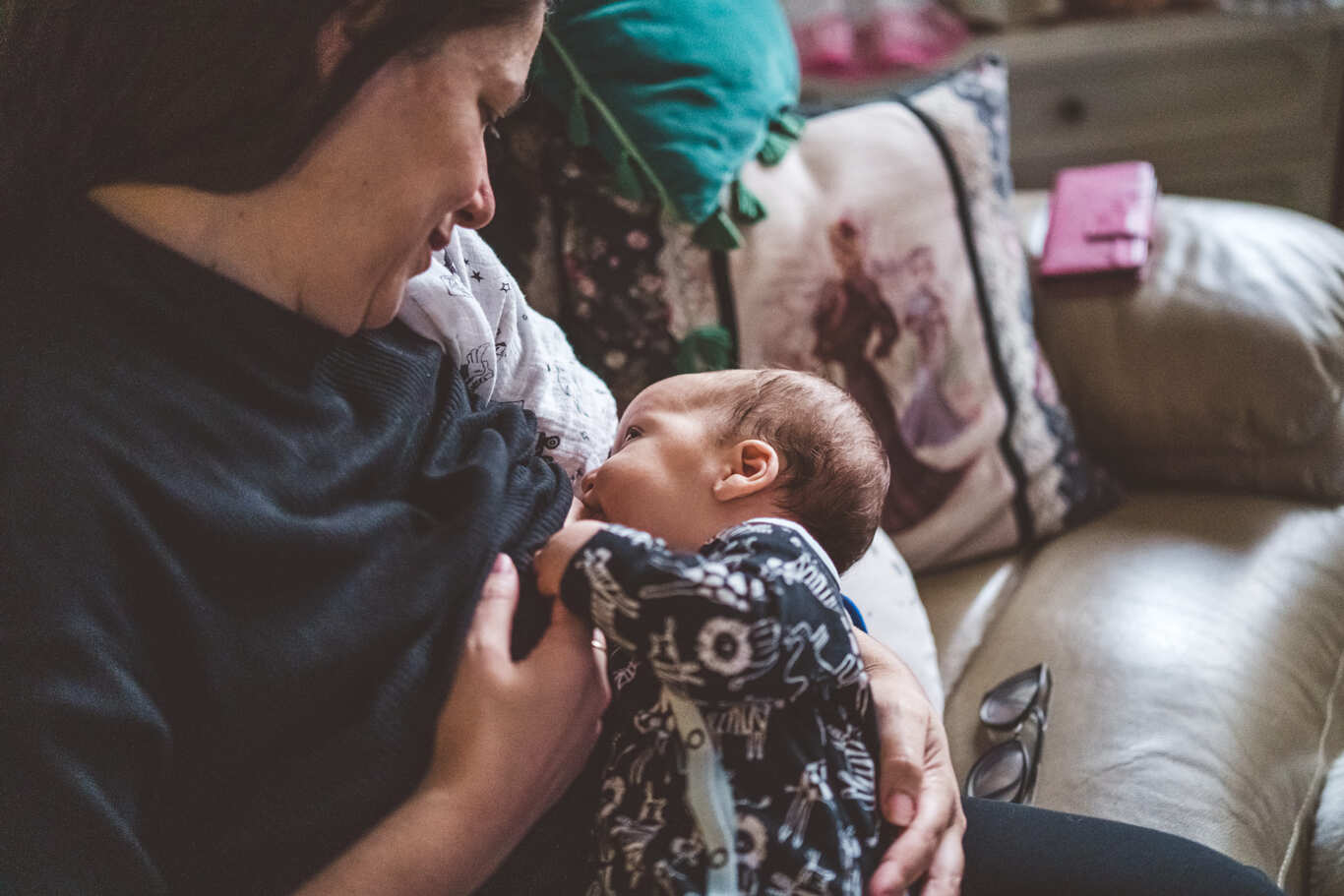Breastfeeding Amidst Crisis
Navigating emergencies that arise from a war, a natural disaster or an outbreak of a pandemic presents significant challenges for everyone, and particularly for parents of infants.
Keep breastfeeding in emergencies
Maintaining a breastfeeding routine in stressful times is a crucial means of preserving the mental and physical well-being of both you and your baby. In emergency situations, breast milk remains the purest and most secure source of nourishment, and therefore ensures nutritional security.
The benefits of breastfeeding, especially in emergency situations
-
High nutritional value
Breast milk is tailored to the infant’s nutritional needs.
-
Readily available
Breast milk is always readily available at the right temperature, and there is no need to mix it with water, which may be contaminated or unavailable.
-
Strengthening the immune system
Breast milk provides protection against illnesses, particularly diarrhea and respiratory diseases, and boosts the immune system.
-
Reducing stress and tension
Breastfeeding helps reduce stress and tension as the hormones produced in breastfeeding have a soothing effect and give a sense of control.
-
Preserving milk
Consistent breastfeeding helps maintain the milk production. If you are unable to breastfeed for a short period of time, manually pumping or using a breast pump is crucial for maintaining the milk flow.
-
Skin-to-skin contact
Even without breastfeeding, creates a sense of tranquility and security for both you and your baby, particularly during times of stress, and helps maintain the milk production.
Note
Note
A sudden pause of the breastfeeding can lead to complications, including breast congestion, inflammations other effects.
The impact of stress and anxiety on maternal milk
- It is important to keep in mind that the process of milk production is unaffected by stressful situations. The process of milk production will continue as long as you attach the baby's mouth to the breast. The milk release may be affected, but only temporarily. Skin-to-skin contact and the suction motion help stimulate milk release.
- No need to worry, the quality and composition of breast milk remain unaffected by anxiety, panic, or stress.
- Even if you eat less than usual or your nutrition is unbalanced in times of stress and anxiety, you can keep breastfeeding.
- Breastfeeding is particularly important, even in less favorable environments. For example, in low-hygiene settings like shelters and crowded areas.
- In times of emergency, the risk of the spread of epidemics is higher. Therefore, it is important that you continue to breastfeed to protect from illnesses.
- There is a general consensus in the medical community that in situations of epidemic outbreaks, the benefits of breastfeeding outweigh the risks.
Tip
Tip
In times of security tensions, it is recommended to set up a comfortable space in the residential protected room or the communal shelter, with a comfortable sitting area, drinking water, wet wipes and tasty and healthy food (fresh or dried fruits, nuts, almonds and so on).
Tipat Halav clinics (Family Health Centers) provide breastfeeding support anytime, anywhere, through a hotline at *5400 extension 9.

















